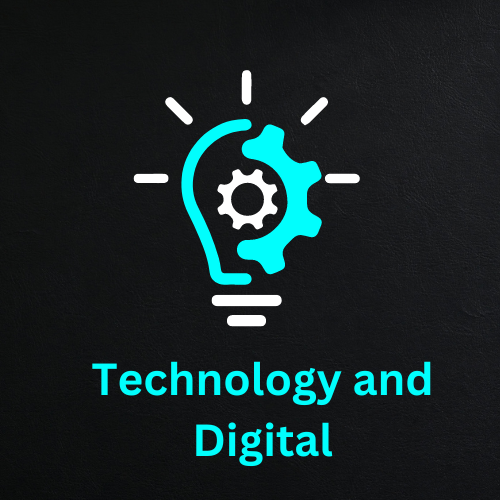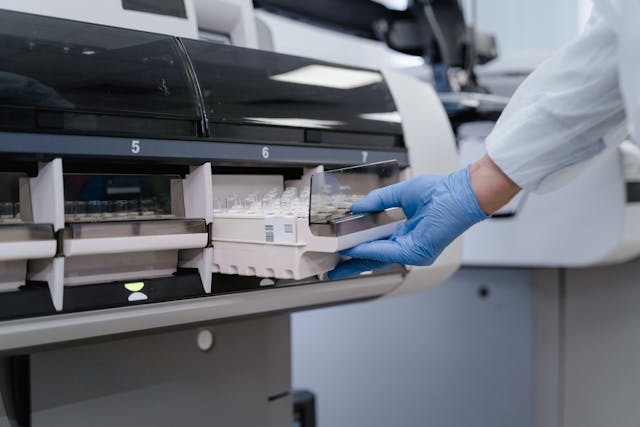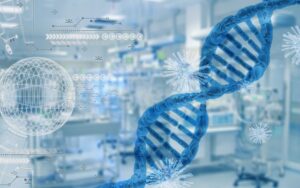
From Microbes to Medicine: Harnessing Biotechnology for Biopharmaceuticals
Biotechnology has revolutionized the field of medicine, particularly through the development of biopharmaceuticals. These innovative drugs, derived from living organisms, offer groundbreaking treatments for a wide range of diseases. Let’s explore how biotechnology harnesses the power of microbes and advanced techniques to create life-saving biopharmaceuticals.
Understanding Biotechnology
Definition and History
Biotechnology is the use of biological systems, organisms, or derivatives to create products and technologies that improve our quality of life. Its history spans from ancient fermentation processes to modern genetic engineering, reflecting its continuous evolution and increasing complexity.
Key Principles and Techniques
Biotechnology relies on principles such as recombinant DNA technology, cell culture, and genetic modification. Techniques like CRISPR, monoclonal antibody production, and microbial fermentation are fundamental in developing biopharmaceuticals.
What Are Biopharmaceuticals?
Definition and Distinction from Traditional Pharmaceuticals
Biopharmaceuticals are medicinal products manufactured using biological sources. Unlike traditional pharmaceuticals, which are chemically synthesized, biopharmaceuticals are derived from living organisms, making them complex and often more effective in targeting specific diseases.
Types of Biopharmaceuticals
Biopharmaceuticals include a wide range of products such as monoclonal antibodies, recombinant proteins, vaccines, gene therapies, and cell therapies. Each type has unique applications and benefits in treating various medical conditions.
The Role of Microbes in Biopharmaceuticals
Microbial Fermentation
Microbes like bacteria and yeast play a crucial role in biopharmaceutical production through fermentation. This process involves growing microbes in controlled conditions to produce desired proteins or enzymes used in medicines.
Genetic Engineering of Microbes
Genetic engineering allows scientists to modify microbial DNA, enabling microbes to produce specific therapeutic proteins. Techniques such as recombinant DNA technology have revolutionized how we harness microbes for drug production.
Microbial Factories for Drug Production
Microbes act as miniature factories, efficiently producing complex biopharmaceuticals. They can be engineered to produce large quantities of drugs like insulin, growth hormones, and monoclonal antibodies, making them essential in modern medicine.
Key Biotechnological Techniques in Biopharmaceuticals
Recombinant DNA Technology
Recombinant DNA technology involves combining DNA from different sources to create new genetic combinations. This technique is foundational in producing recombinant proteins and other biopharmaceuticals.
Monoclonal Antibodies
Monoclonal antibodies are identical antibodies produced by a single clone of cells. They are designed to target specific antigens, making them highly effective in treating diseases like cancer and autoimmune disorders.
CRISPR and Gene Editing
CRISPR-Cas9 is a revolutionary gene-editing technology that allows precise modifications to DNA. It holds immense potential in developing gene therapies for genetic disorders, paving the way for personalized medicine.
Development and Production of Biopharmaceuticals
Drug Discovery and Development Process
The journey from discovery to market involves several stages: target identification, preclinical testing, clinical trials, and regulatory approval. Each stage is crucial to ensure the safety and efficacy of biopharmaceuticals.
Bioprocessing and Manufacturing
Bioprocessing involves growing cells or microbes in bioreactors to produce biopharmaceuticals. It requires sophisticated technology to maintain optimal conditions for cell growth and product yield.
Quality Control and Assurance
Stringent quality control and assurance measures are essential to ensure the purity, potency, and safety of biopharmaceuticals. This includes rigorous testing and compliance with regulatory standards.
Applications of Biopharmaceuticals
Cancer Treatment
Biopharmaceuticals like monoclonal antibodies and CAR-T cell therapies have transformed cancer treatment. They offer targeted approaches that can attack cancer cells without harming healthy tissues.
Infectious Disease Prevention and Treatment
Vaccines and antiviral therapies are critical biopharmaceuticals in preventing and treating infectious diseases. Biotechnological advances have accelerated the development of vaccines, including those for COVID-19.
Autoimmune Disorders and Chronic Diseases
Biopharmaceuticals are effective in managing autoimmune disorders like rheumatoid arthritis and chronic diseases such as diabetes. They provide targeted treatments that can significantly improve patient outcomes.
Case Studies in Biopharmaceuticals
Insulin Production
Insulin, essential for diabetes management, was one of the first biopharmaceuticals produced using recombinant DNA technology. Genetically engineered bacteria produce human insulin, revolutionizing diabetes treatment.
Monoclonal Antibody Therapies
Monoclonal antibodies like Herceptin for breast cancer and Humira for rheumatoid arthritis highlight the success of biopharmaceuticals in providing targeted, effective treatments for various conditions.
Gene Therapy Success Stories
Gene therapies, such as Luxturna for inherited retinal disease and Zolgensma for spinal muscular atrophy, represent breakthroughs in treating genetic disorders. These therapies correct defective genes, offering hope for curing previously untreatable conditions.
Benefits of Biopharmaceuticals
Targeted Therapies
Biopharmaceuticals offer highly targeted therapies, reducing collateral damage to healthy cells and improving treatment outcomes. This precision medicine approach is transforming patient care.
Reduced Side Effects
Compared to traditional treatments, biopharmaceuticals often have fewer and less severe side effects. Their specificity allows for more effective treatment with minimized adverse reactions.
Advances in Personalized Medicine
Biopharmaceuticals are at the forefront of personalized medicine, where treatments are tailored to individual genetic profiles. This approach maximizes efficacy and minimizes risks, leading to better patient outcomes.
Challenges in Biopharmaceuticals
High Development Costs
Developing biopharmaceuticals is expensive, with high costs associated with research, development, and manufacturing. These costs can impact the pricing and accessibility of these therapies.
Regulatory Hurdles
Biopharmaceuticals must navigate complex regulatory pathways to ensure safety and efficacy. This involves rigorous testing and compliance with strict guidelines, which can delay the approval process.
Ethical Considerations
The use of genetic engineering and manipulation of living organisms raises ethical concerns. Balancing innovation with ethical responsibility is crucial in the development of biopharmaceuticals.
Future Prospects of Biopharmaceuticals
Emerging Technologies
New technologies, such as synthetic biology and advanced gene editing, hold promise for the future of biopharmaceuticals. These innovations could lead to more effective and accessible treatments.
Potential for Curing Genetic Diseases
Advances in gene therapy and personalized medicine have the potential to cure genetic diseases, offering hope for patients with conditions previously considered untreatable.
Expanding Access to Biopharmaceuticals
Efforts to reduce costs and streamline regulatory processes are essential to expand access to biopharmaceuticals. Ensuring that these life-saving treatments reach all who need them is a critical goal for the future.
How Individuals Can Support Biopharmaceutical Innovation
Participating in Clinical Trials
Volunteering for clinical trials is vital for advancing biopharmaceutical research. Participation helps gather essential data to ensure the safety and efficacy of new treatments.
Advocating for Research Funding
Supporting policies and initiatives that fund biopharmaceutical research can drive innovation. Public and private investment is crucial for the continued development of new therapies.
Promoting Public Understanding and Acceptance
Educating the public about the benefits and potential of biopharmaceuticals can foster acceptance and support. Awareness campaigns and transparent communication are key to building trust.
Conclusion
Biotechnology, particularly in the realm of biopharmaceuticals, holds the promise of revolutionizing medicine. From microbes to advanced gene-editing techniques, biopharmaceuticals offer innovative solutions for treating a wide range of diseases. Embracing and supporting these advancements responsibly will pave the way for a healthier future.




